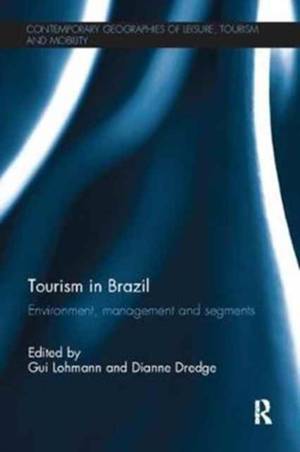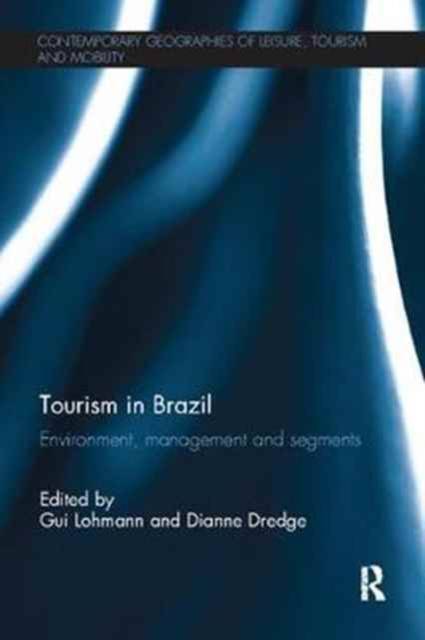
- Afhalen na 1 uur in een winkel met voorraad
- Gratis thuislevering in België vanaf € 30
- Ruim aanbod met 7 miljoen producten
- Afhalen na 1 uur in een winkel met voorraad
- Gratis thuislevering in België vanaf € 30
- Ruim aanbod met 7 miljoen producten
Tourism in Brazil
Environment, Management and Segments
Omschrijving
Since the 1990s, tourism has become a major driver of economic activity and community development in Brazil. New policies and approaches, growing expertise and investment in tourism have brought significant transformation in tourism products, destination development and community involvement. In addition Brazil will be hosting two major sport events in the years ahead, i.e. the Soccer World Cup, in 2014, and the Olympic Games in Rio de Janeiro, in 2016. Brazil offers many cultural and natural attractions but, similar to many other developing countries, it still struggles with issues such as infrastructure, accessibility, product development, service quality, market access and workforce training.
This book provides an in-depth examination of tourism in Brazil, critically reviewing its development and management. The social, economic, political and environmental contexts of this emerging global power provide an intriguing backdrop. The book considers important development issues such as the changing policy context, community benefit tourism and indigenous tourism. It explores the impacts of tourism on the environment, changing community attitudes towards tourism, transport infrastructure and sustainability issues in events. Particular segments are explored including backpacker tourism, sensual tourism, adventure tourism and ecotourism and the implications for tourism research and education are examined. The book draws from theoretical foundations and practical insights, and gives voice to Brazilian researchers who are actively engaged in researching tourism.
Drawing from cutting edge cross-cultural research, this original and timely book will be of interest to students, researchers and academics in the areas of Tourism, Geography and related disciplines.
Specificaties
Betrokkenen
- Uitgeverij:
Inhoud
- Aantal bladzijden:
- 214
- Taal:
- Engels
- Reeks:
Eigenschappen
- Productcode (EAN):
- 9781138081499
- Verschijningsdatum:
- 25/05/2017
- Uitvoering:
- Paperback
- Formaat:
- Trade paperback (VS)
- Afmetingen:
- 156 mm x 233 mm
- Gewicht:
- 452 g

Alleen bij Standaard Boekhandel
Beoordelingen
We publiceren alleen reviews die voldoen aan de voorwaarden voor reviews. Bekijk onze voorwaarden voor reviews.










